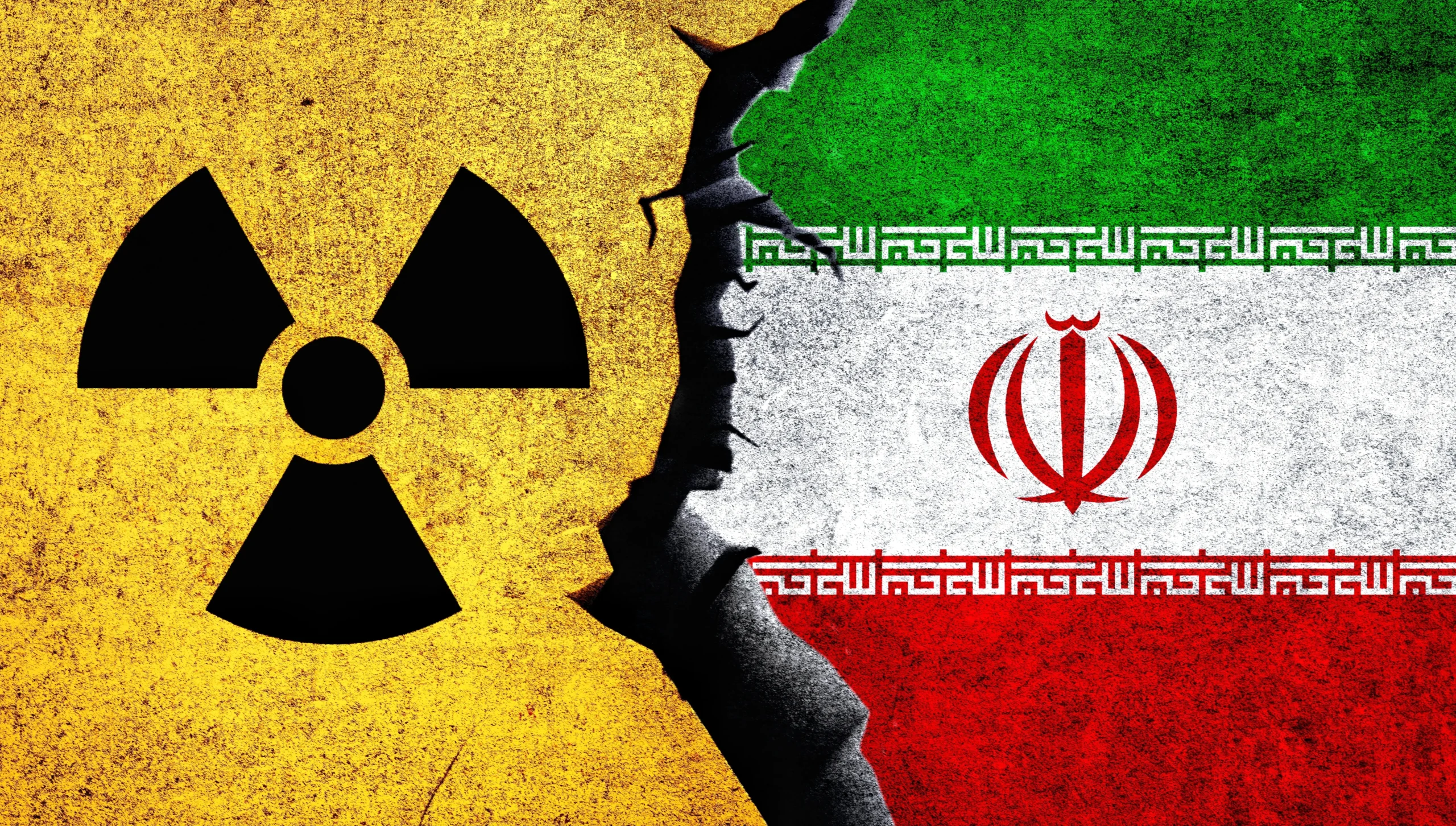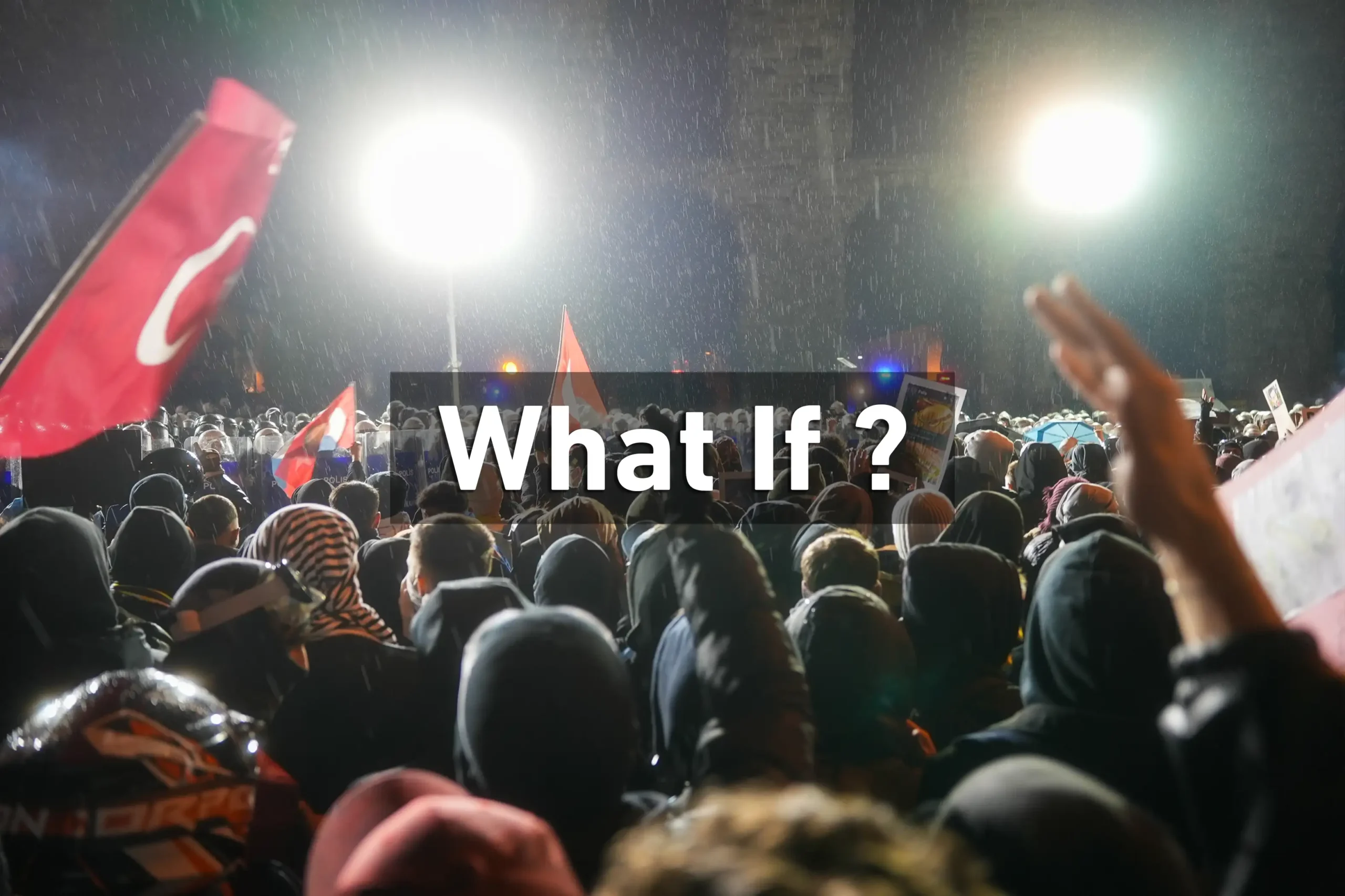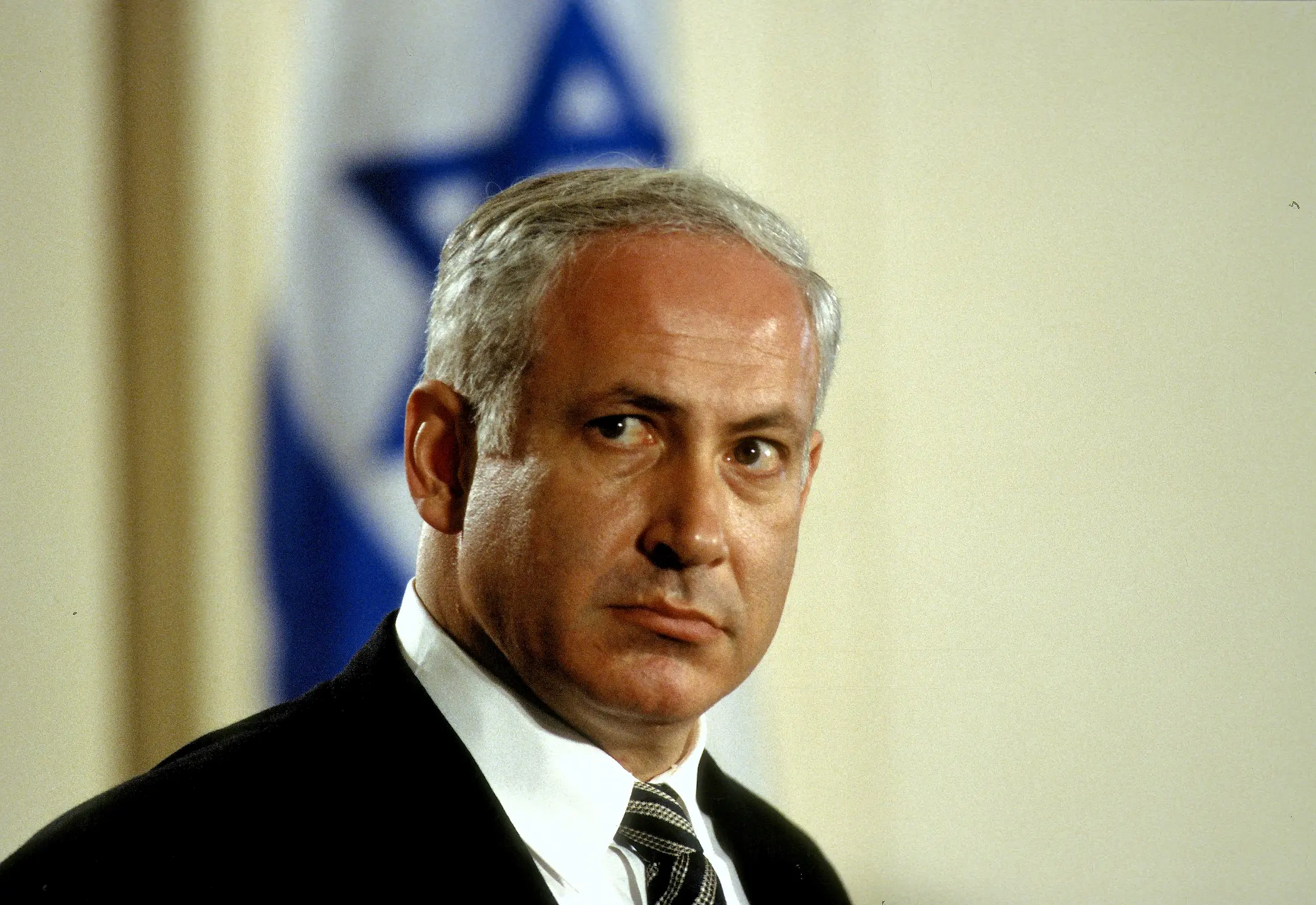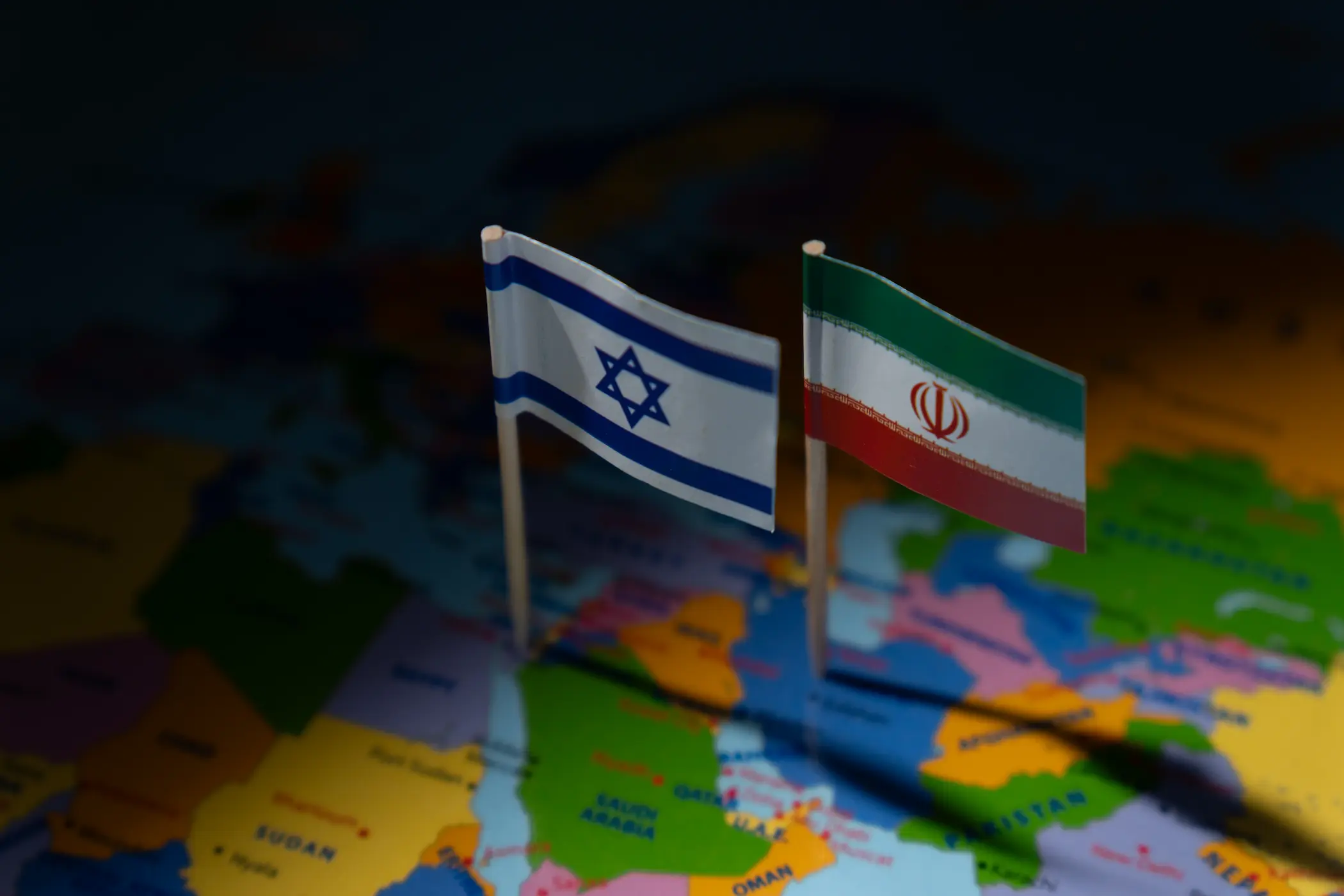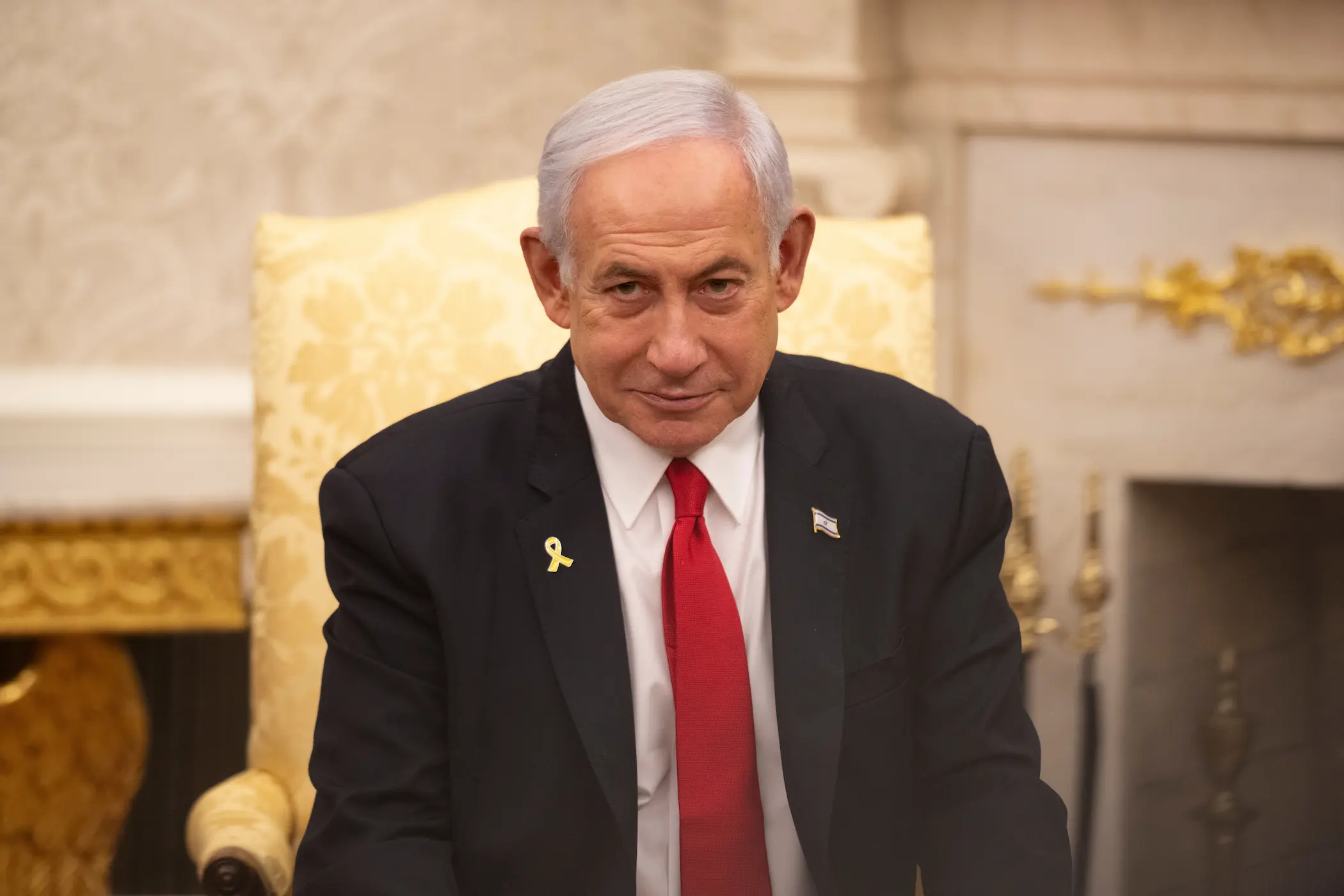20 Oct 2025
The Future Role of China in the GCC’s Tech Transition
China has a long-term goal to be a global leader in technology. To achieve such ambition, the country has taken serious steps widening its Belt and Road Initiative (BRI) traditional infrastructure projects to incorporate digital infrastructure projects embodied in the Digital Silk Road (DSR). The DSR was initially launched in 2015 by the government as an idea on paper and during the opening ceremony of the First Belt and Road Forum in May 2017, China’s President Xi Jinping, adopted the DSR term officially and it was incorporated in the government’s BRI strategy as the digital dimension.
The DSR initiative focuses on building digital infrastructure and exporting its technology to the beneficiary countries, it includes telecommunications infrastructure, like 5G networks, overland fibre-optic cables, data centres, cloud computing, artificial intelligence (AI), as well as applications that support e-commerce and mobile payments, along with smart cities and surveillance technology. Additionally, the DSR provides support to Chinese tech companies, like ZTE, Huawei, and Alibaba, to carry on the work with the beneficiaries.
The DSR aims to enhance Beijing's global digital influence as it creates opportunities for a wide range of cooperation and partnerships between Chinses tech companies and other beneficiaries around the world in areas of digitalization and AI. China’s DSR encompass a variety of projects in 5G deployment, e-commerce platforms, and AI applications, such as DeepSeek which is an alternative model to ChatGPT.
China signed DSR cooperation agreements with several countries in Africa, the Middle East, Eastern Europe, Latin America, and Southeast Asia. The cooperation takes place between scientists and engineers from the recipient country and Beijing, like opening a training centre or in research and development (R&D). The areas of cooperation are wide, including smart cities, AI and robotics, clean energy, and surveillance capabilities, like data localization. GCC countries are considered one of the important partners to China’s DSR, where it is closely integrating in the GCC digitalization goals.
17 Oct 2025
Robotics, China, and MENA: The Battle for Industrial Sovereignty
China’s robotics drive is no longer just a story of factories becoming more efficient but a story of a new industrial revolution. Each year, hundreds of thousands of new machines are deployed across its production lines, reshaping global supply chains and altering the balance of technological power. For the Middle East and North Africa, this shift raises questions that cannot be postponed. Automation is moving from the margins to the centre of economic strategy, and regions that fail to build capacity risk being locked into systems designed elsewhere.
The future of robotics in MENA is therefore not only about who installs machines the fastest, but about who sets the standards, who controls the data, and who determines the terms of industrial competition. The region’s next chapter will hinge on whether it becomes a maker of the technologies that define the century, or simply a consumer of them.
16 Oct 2025
Algorithms of Genocide: From Silicon Valley to the Gaza Strip
The tools of twenty-first-century warfare are no longer confined to conventional weapons such as missiles, tanks, and aircraft. They have expanded to encompass cloud-computing platforms, artificial-intelligence systems, and data-processing capabilities developed and managed by major U.S.-based technology corporations, including Microsoft, Google, and Amazon. These companies have become central pillars in the conduct of modern digital warfare, with their decisions and policies exerting profound geopolitical influence and forming an integral component of contemporary global power dynamics.
In this context, the relationship between commercial technology corporations and the Israeli military has undergone a profound transformation, moving beyond the traditional model of supplying hardware and software to establish digital infrastructure as a central instrument in the management of modern conflict, most notably during the war on Gaza. A new paradigm of integration between the military and the private sector has emerged, in which commercial digital systems have become an inseparable component of military capability, blurring the boundaries between market-driven services and state security architectures.
The management of the global narrative surrounding humanitarian catastrophes, including the confirmed famine and persistent reports of atrocities, has become inseparable from the content-governance policies imposed by major digital platforms controlled by technology conglomerates. These platforms frequently amplify official narratives while minimising or obscuring the magnitude of famine and conflict. At the same time, they enable advanced surveillance mechanisms that restrict or silence independent media operating within conflict zones.
The war in Gaza has underscored the dual and increasingly intricate role of major technology corporations, particularly Google (Alphabet Inc.) and Microsoft Corporation, in both modern warfare and global information control. These entities operate within a mutually reinforcing dynamic, providing specialised cloud-computing and artificial-intelligence infrastructure that enables unprecedented levels of lethal military operations and mass surveillance across Gaza and the occupied territories. Concurrently, they deploy advanced mechanisms of information control, encompassing internal content moderation, algorithmic bias, and data suppression, to recalibrate public narratives and shield corporate power from accountability.
This analysis, therefore, examines the role of technology corporations in shaping the dynamics and repercussions of the conflict in Gaza, exploring how they contribute to the engineering of the informational, political, and humanitarian landscape within the framework of contemporary warfare. In this process, these corporations are transformed from ostensibly neutral service providers into active participants within the conflict’s infrastructural ecosystem.
14 Oct 2025
What Would Iran’s Withdrawal from the Nuclear Non-Proliferation Treaty Mean?
Iran’s nuclear file is witnessing a rapidly escalating trajectory, underscored by its potential decision to withdraw from the Nuclear Non-Proliferation Treaty (NPT). This move could redefine the very architecture of global nuclear governance. Should this course of action materialise, it would mark the first precedent of its kind since North Korea’s withdrawal from the same treaty in 2003, transforming what might initially appear as a mere negotiating stance into a profound strategic turning point with far-reaching implications for the policies of the Middle East and the wider international order.
These Iranian threats, which began escalating in June 2025, did not emerge in a vacuum; instead, they were a direct reaction to a series of successive strategic developments. The U.S.–Israeli military strikes targeting Iranian nuclear facilities in June 2025 significantly deepened the complexity of the situation, while the crisis further intensified when the European troika (E3) announced in September 2025 the activation of the “snapback mechanism,” thereby reimposing UN sanctions on Tehran. Taken together, these measures led Iran to conclude that the economic and political value of adhering to international treaties had effectively evaporated.
The gravity of the situation extends beyond political dimensions to encompass highly sensitive technical and legal aspects. Technically, Iran possesses between 400 and 450 kilograms of uranium enriched to roughly 60%; a stockpile that places it only weeks away from producing weapons-usable fissile material if enrichment were elevated to about 90%. Legally, Iran’s invocation of Article X of the NPT would trigger an immediate cessation of the International Atomic Energy Agency’s (IAEA) oversight and remove the Comprehensive Safeguards Agreement from the equation, paving the way for near-total diplomatic isolation. Consequently, the fallout from withdrawal would transcend the confines of Tehran’s nuclear programme and create a broad regional security dilemma.
30 Sep 2025
An Unequal Cost: How Space Debris Deepens the Exclusion of Developing Nations from the Economies of the Future
Since the launch of the first satellite in 1957, the Low Earth Orbit (LEO) has undergone a profound transformation from a near-empty frontier into a congested and polluted environment shaped by decades of human activity. Non-functional satellites, spent rocket stages, and fragmentation debris from collisions and explosions have accumulated to a mass exceeding 14,700 tons. Critical events have amplified the scale of the problem, most notably China’s Anti-Satellite Test (ASAT) in 2007 and the 2009 collision between the U.S. Iridium-33 and Russia’s Kosmos-2251, which together generated nearly one-third of all catalogued debris in LEO.
This material is unevenly distributed but highly concentrated between 750 and 1,000 kilometres, an orbital belt central to Earth Observation and communications. Objects in this altitude range can persist for centuries, while in the Geostationary Orbit (GEO) debris may remain indefinitely, underscoring the long-term persistence of the hazard. Consequently, orbital space has shifted from an open frontier to a finite and polluted resource requiring collective governance.
This study examines the economic and political dimensions of space debris. It assesses the direct costs borne by operators, the cascading risks to terrestrial infrastructure such as Global Navigation Satellite Systems (GNSS) and weather forecasting, and the disproportionate challenges facing developing nations. It concludes by analysing potential responses, ranging from mitigation strategies to Active Debris Removal (ADR), within the broader framework of international governance and global equity.
29 Sep 2025
What if the Turkish Judiciary Invalidates the 2023 CHP Leadership Elections?
The Republican People’s Party (CHP) managed to achieve a noticeable electoral victory against the ruling Justice and Development Party (AKP) in the latest local elections that were held on 31 March 2024. However, the joy of victory did not last long, as the Mayor of Istanbul, Ekrem İmamoğlu, was arrested for corruption charges before being ousted from his position as the Mayor of Istanbul. The investigation into corruption charges revealed that the CHP leadership elections held on 4–5 November 2023, which resulted in the election of Özgür Özel as the party’s leader, might have involved illegal activities that could have jeopardised the transparency of the outcome. As a result, the Turkish judiciary is investigating this issue at the moment. On Monday, Sept. 15 2025, a Turkish court in Ankara held a hearing in a case questioning the legitimacy of the CHP’s 2023 leadership election (the 38th Congress), alleging irregularities like vote-buying, meaning that the outcome of the CHP leadership elections may be invalidated. If it happens, the impact on the CHP and electoral map in Turkey could be massive.
26 Sep 2025
The Global Economic Impacts of Starlink Outages: From Operational Fragility to Pathways of Resilience
In recent years, Low Earth Orbit (LEO) satellite constellations have emerged as a transformative layer within the global digital infrastructure, marking a departure from their original role as connectivity solutions for remote regions. These systems are now embedded within the operational cores of critical sectors such as civil aviation, maritime logistics, financial markets, and defence. The clearest manifestation of this structural shift is Starlink, operated by SpaceX, which by mid-2025 had exceeded 7 million users across more than 150 countries, with exponential growth rates in high-value, latency-sensitive industries.
This rapid technological and geographical expansion has positioned Starlink as a globally integrated utility—yet one that operates outside conventional regulatory regimes. It represents a structural concentration of control over global data flows in a single, privately held entity. The dual outages that occurred in July and September 2025 exposed deep systemic vulnerabilities within the Starlink network, including software architecture fragilities and environmental sensitivities to space weather events. These incidents prompted urgent questions about the stability of a critical infrastructure layer that now underpins sectors central to national sovereignty and global economic coordination.
This report interrogates the systemic risks embedded in the global economy’s growing dependence on LEO constellations through two interlinked analytical lenses. The first is a technical-political economy perspective, which examines the underlying architecture of the Starlink network and the typology of its failure modes—both endogenous and exogenous. The second is a forward-looking, scenario-based assessment that models the potential global economic consequences of a 24-hour Starlink outage in 2032. Through this dual approach, the analysis traces the contours of a new strategic dilemma: how to govern an emergent, transnational infrastructure whose failure could trigger multi-sectoral crises at planetary scale, yet whose design and control remain entirely privatized.
25 Sep 2025
UAE’s New Trade Bloc: Ambition, Global Positioning, and Challenges
The United Arab Emirates (UAE) is intending to establish a new trade bloc, a strategic and interconnected initiative aimed at achieving multiple goals on both the national and the international level. This trade block should not be interpreted in isolation, rather as part of the UAE’s wider economic and geopolitical strategy, which reflects the changing and evolving dynamics of the global trade landscape.
In a fragmented globalization era, where competition and integration attempt significantly increase between the regional trade networks and the multilateral systems, the UAE is poised to maintain its influence and relevance by positioning itself at the forefront of the global landscape. This approach will benefit the UAE on different levels, including advancing domestic priorities while simultaneously enhancing its leverage within the evolving global economic power. Nevertheless, the bloc’s success is not completely guaranteed, as it will need to navigate significant regulatory, infrastructural, and political barriers to translate its potentiality into tangible outcomes.
23 Sep 2025
Structuring Power: Who Will Command the Future Map of Global Aviation
The global aviation industry is undergoing a historic realignment, as the center of gravity shifts decisively from West to East—a transformation that reflects deeper dynamics in the redistribution of economic and geopolitical power within the international system. For decades, Western carriers dominated the skies, leveraging superior infrastructure, extensive fleets, and mature consumer markets. Today, however, airlines based in the Middle East and Asia are emerging as the new engines of growth and connectivity, assuming a central role in redrawing the global map of intercontinental air travel. While the COVID-19 pandemic accelerated this trajectory, it did not initiate it; rather, it exposed the structural vulnerabilities of legacy Western airlines and underscored the strategic foresight of their Eastern counterparts, whose recovery was bolstered by extensive state support and institutionally anchored expansion strategies.
One of the most visible manifestations of this shift is an intense race to modernize fleets with next-generation, long-range, fuel-efficient aircraft—an investment wave that exceeds $200 billion in the Middle East alone. This is not merely a technical upgrade; it constitutes a deliberate, long-term vision to project aerial influence, enhance global market competitiveness, and entrench these airlines as sovereign instruments of statecraft.
Accordingly, this study analyzes the contours of this transformation through an integrated framework that examines operational strength, capital investment in fleets, network architectures, and the adaptability of business models. It further explores the growing convergence between national economic visions—such as Saudi Arabia’s Vision 2030 and China’s Belt and Road Initiative—and the strategic deployment of national carriers as tools of geopolitical influence. Rather than forecasting definitive outcomes, the paper seeks to situate this aviation shift within a broader, more volatile global context—one where profitability and efficiency increasingly intersect with sovereignty and strategic positioning, and where the skies themselves become arenas for shaping the balance of power in the decades ahead.
22 Sep 2025
From Diplomacy to Expansion: Netanyahu’s Unpredictable War Path
Netanyahu’s ambitions are no longer confined to diplomacy or the pursuit of normalisation agreements. The Abraham Accords, once seen as his utlimate goal of his contemporary regional strategy, now appear irrelevant, cast aside in favor of a far more aggressive vision. What is unfolding is not the politics of peace but the politics of expansion, where no Arab country can assume immunity. The question of which state will be targeted next is impossible to predict, precisely because Netanyahu’s actions are driven less by rational calculation than by the confidence that comes with unconditional American support. Few could have imagined that Doha, with its U.S. military base and status as a close Washington ally, would be struck, yet it happened. This unpredictability signals a dangerous reality: the scale of war is set to widen, and any country in the region could find itself Israel’s next target.
18 Sep 2025
The War of June 2025: A Clash of Civilisations or a Catalyst for a New Middle East?
As many regional and global powers rush to reshape the Middle East to serve their strategic interests, the past two years have been marked by a cascade of transformative and often tumultuous events. These include the Israeli army’s large-scale invasion of the Gaza Strip following October 7, efforts to diminish Hezbollah’s influence in Lebanon, the fall of the Assad regime in Syria, intensifying Israeli military operations against Iran, and most recently, a wave of Western countries intending to formally recognise a Palestinian state alongside Israel’s announcement of plans for the annexation of the West Bank and a comprehensive occupation of the Gaza Strip.
Together, these rapid developments not only underscore deepening conflict and instability but also actively fuel the emerging discourse about the "New Middle East", a strategic framework envisioned by key actors outside of the region that seeks to redefine the geopolitical, security, economic, and diplomatic order of the region. The intertwining of hard power manoeuvres, shifting alliances, and economic realignments signals a significant recalibration rather than a mere continuation of the status quo.
In 2025, the potential rise in Western recognition of Palestinian statehood reflects growing international dissatisfaction with existing diplomatic frameworks and a push to rethink longstanding regional issues, directly challenging Israel’s traditional security and diplomatic calculus. Concurrently, Israel’s authorised military plan to take full control of Gaza exemplifies a decisive shift toward hardening its territorial and security posture, marking an unprecedented phase in Israeli-Palestinian relations and regional politics.
The confluence of these developments amplifies the narratives and policies underpinning the New Middle East: a vision premised on assertive state-centric realignments, expanded normalisation efforts, a recalibrated balance of power, and an economy-driven model of regional transactions. This evolving order encompasses ambitions to diminish Iranian influence, redefine Palestinian sovereignty on new terms, and facilitate deeper economic and security integration among select regional actors.
Ultimately, these events serve both as catalysts and manifestations of the "New Middle East" discourse. They reflect a region in flux where entrenched conflicts and new diplomatic initiatives are simultaneously eroding old paradigms and opening pathways for a fundamentally restructured Middle Eastern landscape.
This paper critically explores how the recent rapid developments in the Middle East contribute to shaping competing visions of the region’s future. It assesses whether the ongoing transformations reflect a deeper realignment driven by strategic state interests, expanding economic interdependence, and a recalibrated regional order that transcends historical cycles of conflict. Specifically, the analysis considers if these changes primarily illustrate Samuel Huntington’s "Clash of Civilisations" thesis—attributing post-Cold War regional conflicts to cultural and religious identity divisions—or if they instead represent a deliberate and calculated strategic effort to "reshape the Middle East" through redefined state priorities, shifting power dynamics, and newly forged regional and international alliances.
18 Sep 2025
An Isolated Israel
Israeli Prime Minister Benjamin Netanyahu recently acknowledged that Israel is entering a phase of economic and political isolation internationally, largely due to its ongoing military actions in Gaza. He warned that this isolation may last for years and insisted that Israel must adapt by becoming more self-sufficient, especially in its weapons manufacturing capabilities. Netanyahu described this shift as moving toward an economy with "autarkic characteristics," a term he said he despises since he has long supported free-market policies. Nonetheless, given potential export bans and economic sanctions, he emphasized Israel's need to be both "Athens and super-Sparta," implying a combination of intellectual and military self-reliance to withstand these challenges.
His comments are a rare admission that Israel faces significant global backlash and diplomatic estrangement due to the nearly two-year war in Gaza. Several Western countries, such as Spain, have cancelled arms deals with Israel over the war, with a U.N. Independent International Commission finding that Israel is committing genocide, and a slew of other countries have officially recognized a Palestinian State.
Netanyahu's remarks mark a rare acknowledgment of the changing international environment around Israel. This mounting isolation not only underscores Israel’s diplomatic challenges but also highlights the growing vulnerabilities within its economy, as sanctions, boycotts, and the loss of arms contracts emerge as direct consequences of its genocide in Gaza.



